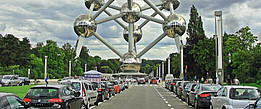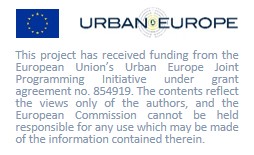Project objectives
The SmarterLabs project aims to develop a Living Lab approach to effectively deal with two major risks to the successful, widespread implementation of smart mobility technologies: (1) unforeseen barriers to large-scale adoption and change of socio-technical transport systems, and (2) exclusion of social groups not matching the required ‘smart citizen’ profile.
Large-scale adoption of smart, low-carbon transport and mobility technologies will result in reduced fossil energy use and reduced emissions of greenhouse gases. In addition, improved social inclusion will be of particular value to the citizens and NGOs representing citizen interests, as the novel approach explicitly aims to involve citizens not matching the usual ‘smart citizen’ profile as participants in Living Lab experiments, allowing them to influence the innovation process.
Implementation guidelines for this novel approach are to be developed, tested and refined on the basis of retrospective analysis of urban mobility governance in the cities of Bellinzona, Brussels, Graz and Maastricht, and action research in Living Lab experiments in these four cities. They all have different experiences with mobility governance and are currently planning implementation projects of smart mobility solutions which offer good opportunities for Living Lab experiments.




Action research means that the novel Living Lab approach is tested under real-life conditions in the implementation projects in Bellinzona, Brussels, Graz and Maastricht. The main feature of this novel approach is to anticipate major risks of a smart technology innovation (resistance to change, exclusion of social groups). By explicitly addressing anticipated barriers and incorporating groups at risk of exclusion in the Living Lab experiment, the chances of successful uptake of the end result are enhanced.
The implementation guidelines that result from the Living Lab experiments are to be tested and refined through three workshops in Santander, Helsinki and Istanbul. They will consist of the co-design (i.e., SmarterLabs consortium partners plus local stakeholders) of a Living Lab experiment-plan for these cities. The goal of these workshops is to test and refine the guidelines in Northern and Southern European city contexts to ensure broad European applicability of the novel approach. The members of the project’s Advisory and Dissemination Board host these meetings in collaboration with the local decision makers and stakeholders.
For all European cities with Smart City initiatives, the projects delivers generic implementation guidelines for Smart City Living Labs on how to address barriers to upscaling that may stem from resistance to large-scale change in socio-technical systems and from people being excluded (in direct or indirect way). By giving special attention to anticipation of possible resistance and social exclusion in the form of Living Labs, the results of Smart City initiatives (now and in the future) are expected to become better scalable and more robust in terms of value creation for a wide range of stakeholders.
In addition to a policy brief on the Living Lab approach as governance instrument, the implementation guidelines are translated into a novel practitioners brief: a concise summary of what has been learned about how to organize participation and reflexivity about unwanted effects and sources of resistance in Smart City Living Labs, aimed at any practitioner (researcher, business, citizens, or any other stakeholder) that considers organizing or participating in a Living Lab.


